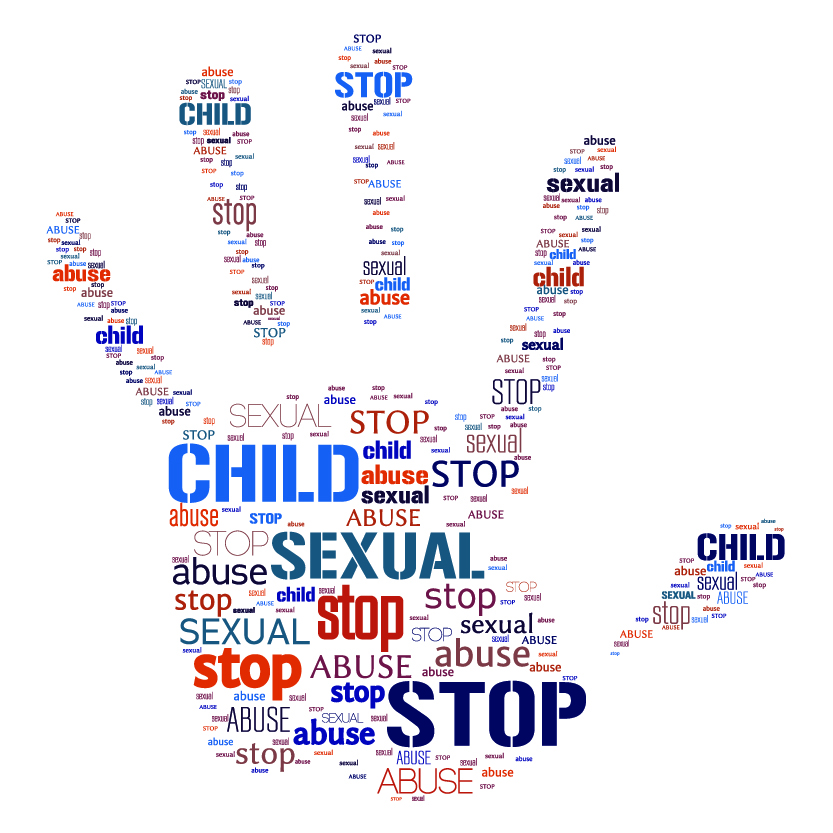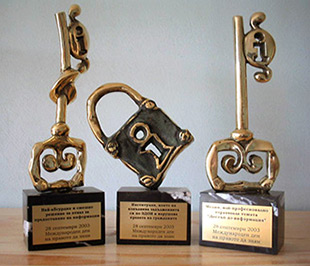Ça peut paraître étonnant mais c’est bien vrai:
il y a une journée internationale de la Bible.
La Bible – une vraie bibliothèque – recèle des trésors de toutes sortes.
David Minier nous guide pour en faire la découverte.
Ça peut paraître étonnant mais c’est bien vrai:
il y a une journée internationale de la Bible.
La Bible – une vraie bibliothèque – recèle des trésors de toutes sortes.
David Minier nous guide pour en faire la découverte.
 The first World Television Forum was staged by the United Nations in the mid ’90s, and it was out of this event that World Television Day was born. The forum brought together leading figures from the media industry to analyze the growing impact that TV had on decision-making and public opinion when it comes to issues of peace and security around the planet.
The first World Television Forum was staged by the United Nations in the mid ’90s, and it was out of this event that World Television Day was born. The forum brought together leading figures from the media industry to analyze the growing impact that TV had on decision-making and public opinion when it comes to issues of peace and security around the planet.
The History of World Television Day
In December 1996 the United Nations General Assembly proclaimed the 21st of November World Television Day, the same year the first World Television Forum was held. According to the United Nations, this decision was taken in order to give recognition of the increasing impact television has had on decision-making by bringing various conflicts and threats to peace and security to the world’s attention, as well as its coverage of other major issues, including economic and social.
World Television Day is not meant to be so much a celebration of the electronic tool itself, but rather of the philosophy which it represents–a philosophy of openness and transparency of world issues. Television has long been thought to represent communication and globalization in the contemporary world. However, not all of the government representatives present saw matters quite that way.
The delegation from Germany said, “Television is only one means of information and an information medium to which a considerable majority of the world population has no access… That vast majority could easily look at World Television Day as a rich man’s day. They do not have access to television. There are more important information media and here I would mention radio in particular.”
 In 2000, the Women’s World Summit Foundation (WWSF), a non-governmental organization, launched the World Day for Prevention of Child Abuse on November 19. WWSF, along with an international coalition of advocacy organizations for women and children’s issues, mobilized governments and societies to take action and prevent child abuse. In 2001, APA, through its International Office, joined the coalition and also marked the day, November 19, as the World Day for the Prevention of Child Abuse. APA developed the following fact sheet, « Violence Against Children in the US, » with information on violence against children in the US. It includes tips for identifying and preventing child abuse, with an outline of the association’s contributions to child abuse prevention.
In 2000, the Women’s World Summit Foundation (WWSF), a non-governmental organization, launched the World Day for Prevention of Child Abuse on November 19. WWSF, along with an international coalition of advocacy organizations for women and children’s issues, mobilized governments and societies to take action and prevent child abuse. In 2001, APA, through its International Office, joined the coalition and also marked the day, November 19, as the World Day for the Prevention of Child Abuse. APA developed the following fact sheet, « Violence Against Children in the US, » with information on violence against children in the US. It includes tips for identifying and preventing child abuse, with an outline of the association’s contributions to child abuse prevention.
Violence Against Children in the US
 En juin 2007, l’assemblée générale de l’ONU a décidé de célébrer la Journée Internationale de la non-violence le 2 octobre de chaque année, jour anniversaire de la naissance du Mahatma Gandhi.
En juin 2007, l’assemblée générale de l’ONU a décidé de célébrer la Journée Internationale de la non-violence le 2 octobre de chaque année, jour anniversaire de la naissance du Mahatma Gandhi.
Elle souhaitait par ailleurs rendre hommage à l’action de son ancien secrétaire général Kurt Waldheim, décédé le 14 juin de la même année.
La culture de la non-violence et de la paix
Dans sa réflexion, l’assemblée générale de l’ONU a proposé huit grands axes de travail qui sont:
 The right of access to information is an important human right, necessary for the enjoyment of other human rights.
The right of access to information is an important human right, necessary for the enjoyment of other human rights. La communauté internationale, au travers d’institutions telles que l’Unesco ou l’Union Européenne reconnaît le droit d’accès à l’information publique comme étant « un droit humain nécessaire pour la protection et la jouissance des autres droits, y compris le droit à la liberté d’expression« .
La communauté internationale, au travers d’institutions telles que l’Unesco ou l’Union Européenne reconnaît le droit d’accès à l’information publique comme étant « un droit humain nécessaire pour la protection et la jouissance des autres droits, y compris le droit à la liberté d’expression« .
Bref, on ne plaisante pas avec l’accès à l’information…
Lutter contre la corruption
Permettre au citoyen lambda d’accéder à l’information participe activement à la lutte contre la corruption dans la vie publique; il est aussi une condition indispensable à la promotion de la culture pour tous les citoyens.
S’informer pour participer
Encourager la participation des citoyens à la vie publique et leur permettre de jouir de leurs droits civils et politiques passe, normalement, par la fourniture d’une information sincère et complète à tout un chacun…
Cette journée internationale en est, en 2023, à sa 18è édition.
 World Telecommunications Day celebrates the constant evolution of one of the most important factors of our lives: communication. The main goal of World Telecommunications Day (WTD) is to highlight the importance of communication and how information travels across the world. It also aims to increase awareness of how crucial communication is in our lives, and stimulate the development of technologies in the field.
World Telecommunications Day celebrates the constant evolution of one of the most important factors of our lives: communication. The main goal of World Telecommunications Day (WTD) is to highlight the importance of communication and how information travels across the world. It also aims to increase awareness of how crucial communication is in our lives, and stimulate the development of technologies in the field.
The World Telecommunications Day is in tight connections with the International Telegraph Union (ITU), the committee formed in 1865 to support the emerging communication methods of the time. ITU was present throughout all the great breakthroughs in communication – the invention of the telephone in 1876, the launch of the first satellite in 1957 and, ultimately, the birth of the Internet in the 60s. Even though The International Telegraph Union has since changed its name to International Telecommunications Union, it still remains the most important entity in the field of communications, thus remaining in the spotlight at World Telecommunications Day.

La journée mondiale de l’asthme est organisée une fois par an à l’initiative de l’association Asthme et Allergies pour la France. Au niveau mondial, c’est la « Global Initiative for Asthma » qui oeuvre. Elle est en principe fixée au 1er mardi de chaque mois de mai. Il s’agit d’une journée d’échanges et d’information réunissant professionnels de santé et asthmatiques.
Que vous soyez asthmatique, parent d’enfant asthmatique, que vous soyez médecin ou professionnel de santé, elle vous apporte informations et soutien: brochures gratuites, bande dessinée, journal, aide aux associations de patients.
Contrôlez votre asthme !
Chaque année, un thème est retenu pour célebrer la Journée Mondiale de l’asthme. En 2017, le thème retenu est « Contrôlez votre asthme, ne le laissez pas vous dominer ».
L’asthme est un symptôme chronique des voies respiratoires dont les symtômes sont la toux, l’essoufflement, l’obstruction respiratoire et la respiration sifflante. En 2014, 8,1 % des Canadiens de 12 ans et plus, soit environ 2,4 millions de personnes, ont déclaré avoir reçu un diagnostic d’asthme d’un professionnel de la santé.
 Strange things happen among us, people.
Strange things happen among us, people.
Something good can be done for someone and the person who benefits from the good deed is penalized for it!
It should not surprise us – this is what happened already in the time of Jesus.
We see it in today’s gospel on this 4th Sunday of Lent, Year A (Jn.9:1-41).
Jesus has cured a man who had been born blind and the religious leaders give this fortunate man – (or, unfortunate?) –
a hard time indeed.
Questions upon questions to him, to his parents, back to him again – evidently trying to find Jesus somehow guilty.
Unable to have the man say anything that would enable them to reach such a verdict, “They drove him away…”
They cannot SEE the good.
They cannot accept the evidence.
They push aside what is plain and clear.
They cannot face the truth.
They blind themselves in the most obvious way.
Why? Why such an attitude? What this kind of reaction?
But the next question is… Can this not be found in… us?
We may ‘drive away’ a memory… too painful to face.
We may ‘drive away’ a remark… unpleasant to acknowledge.
We may ‘drive away’ a warning… that would call for a decision.
We may ‘drive away’ a piece of advice… that would ask for a change of attitude.
We may ‘drive away’ some information… that invites me to do something.
So, we do as if the truth were not the truth!
We may fell afraid, ashamed, incompetent, powerful, not equal to a situation.
So, we hide, we pretend, we escape.
We literally ‘drive away’ what is plain to SEE but which threatens us.
LENT may be precisely that: the time to make special efforts to SEE.
And to pray for, yes, vision AND insight!

La Journée internationale de la radio et de la télévision en faveur des enfants a lieu le 6 mars. C’est une journée ou les professionnels des médias du monde entier se mettent sur la même longueur d’onde que les enfants.
Ils diffusent des émissions de qualité destinées et consacrées aux enfants. Mais, surtout, ils donnent l’occasion aux enfants de participer à la production des émissions, de parler de leurs espoirs et de leurs ambitions et d’échanger des informations entre eux.
La télévision en fête
La Journée est une initiative conjointe de l’UNICEF et de l’Académie internationale des Arts et Sciences de la télévision. Chaque année, des milliers de personnalités de la radio et de la télévision dans plus de cent pays prennent part à cette Journée, la fêtant sous des formes aussi exceptionnelles et particulières que les enfants eux-mêmes.
La Journée internationale de la radio et de la télévision en faveur des enfants est maintenant une tradition en Amérique latine qui participe à la Journée internationale tous les ans depuis 1994.
Les actions
Dans le cadre de cette Journée internationale, des producteurs du monde entier sont invités à consacrer des émissions à la situation des enfants et à donner l’occasion aux enfants de participer à la production d’émissions.
Elle permet à ces médias d’exploiter le pouvoir de la télévision et de la radio pour sensibiliser les populations aux problèmes de l’enfance. Lors de la “Journée internationale de la radio et de la télévision en faveur des enfants” de 1998, quelque 2000 organismes établis dans 170 pays ont diffusé des programmes spéciaux sur l’enfance, souvent préparés par des enfants.